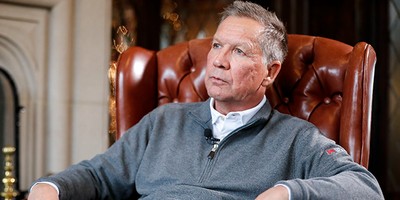Caterpillar CEO Jim Owens’s last minute opposition to the Waxman-Markey cap-and-trade bill, announced just prior to the House of Representatives’ vote, was reminiscent of Senator John Kerry’s infamous statement “I voted for it before I voted against it.”
While Kerry’s embarrassing comment only hurt his presidential prospects, Owens’s promotion of global warming legislation has far-reaching consequences: the potential to cause irreparable harm to his company, customers, employees and our economy.
After years of supporting a national law to limit carbon dioxide emissions through participation in the United States Climate Action Partnership (USCAP) – a lobbying coalition pushing cap-and-trade legislation – Owens realized the final bill would harm his company. According to Energy & Environment News, the day before the House vote, Owens wrote to House Speaker Nancy Pelosi (D-CA), saying, “We cannot endorse this bill in its current form.”
Owens’s flip-flop serves as a case study of the ignorance and arrogance that plagues many CEOs. Too many chief executives exaggerate their political influence only to discover that the “seat at the table” rationale for supporting regulation greatly overstates their ability to steer it.
CEOs such as Owens fail to comprehend the nature and motivations of left-wing politicians and their advocacy group allies. Although Owens may understand how to manage the complexities of a multinational heavy equipment company, when it comes to public policy, he turns into a useful idiot for the liberal agenda.
Recommended
Owens’s comments at the launch of USCAP in 2007 underscored his inflated hopes for cap-and-trade. At that time, he said, "If we go to the sidelines and leave all of this to partisan politics, the stronger environmental groups will drive legislation which is incompatible with policies we need to support manufacturing in the global marketplace." He also added, “National reduction targets would avert a ‘patchwork’ of potentially costly and conflicting state regulations that could hurt U.S. manufacturers amid growing competition for global sales.”
The bill passed by the House fell far short of Owens’s expectations. Yes, the legislation would eliminate the patchwork of state laws but it also would decimate the competiveness of the U.S. manufacturing base – one of Owens’ major concerns. Owens, a member of President Obama’s Economic Recovery Advisory Board, warned the president in May that the U.S. would be at a competitive disadvantage if India and China failed to agree to reduce emissions. Owens said, “I think if we move unilaterally as the United States with a significant cap and trade program that drives up the cost of carbon here significantly, and our international competitors, the countries don't move with us, it's going to create competitive problems …for the manufacturing industry in this country.”
It seems Owens suddenly realized the law he was pushing would indeed backfire on our manufacturing industries and our economy.
Importantly, India and China have consistently refused to commit to a reduction in carbon dioxide emissions. At the G8 meeting held earlier this month, China and India rejected an offer to join the commitment to reduce world emissions.
More recently, during Secretary of State Hillary Clinton’s first trip to India, that country soundly rejected a commitment to reducing fossil fuel emissions. Jairam Rajesh, India’s environment minister, said, “We are simply not in a position to take on legally binding emissions [reduction] targets.”
Regarding international relations, the Waxman-Markey bill could also initiate a trade war that could be very damaging to Caterpillar. If a provision calling for a tariff on imports from countries that don’t agree to limit carbon dioxide emissions became law, China could retaliate against Caterpillar’s significant business interests in that country.
Owens’s failure to recognize the negative consequences of cap-and-trade is most likely not from a lack of aptitude – after all, he has a Ph.D. in economics. Instead, it may be derived from political naiveté and sheer stubborn adherence to a course of action that just “feels” right while ignoring the inherent risks.
In fact, Owens admitted at Caterpillar’s shareholder meeting in 2007 that he had not conducted a cost-benefit analysis on the impact of cap-and-trade on his company.
Even more disturbing was Owens’s response to my question at this year’s annual meeting. I asked him how shareholders could hold him accountable for contributing to a cap-and-trade regulatory avalanche that he could not control and which might prove harmful to shareholder’s interests. Owens arrogantly responded, “You can sell your stock.”
CEOs such as Owens pose a unique test to those of us who value limited government and liberty. It’s very hard to remove an entrenched CEO and hold him accountable for his decisions.
But difficulty should not stand in the way of shareholders, suppliers and customers joining together to challenge Owens and others like him for their efforts to dig a cap-and-trade hole for America























Join the conversation as a VIP Member